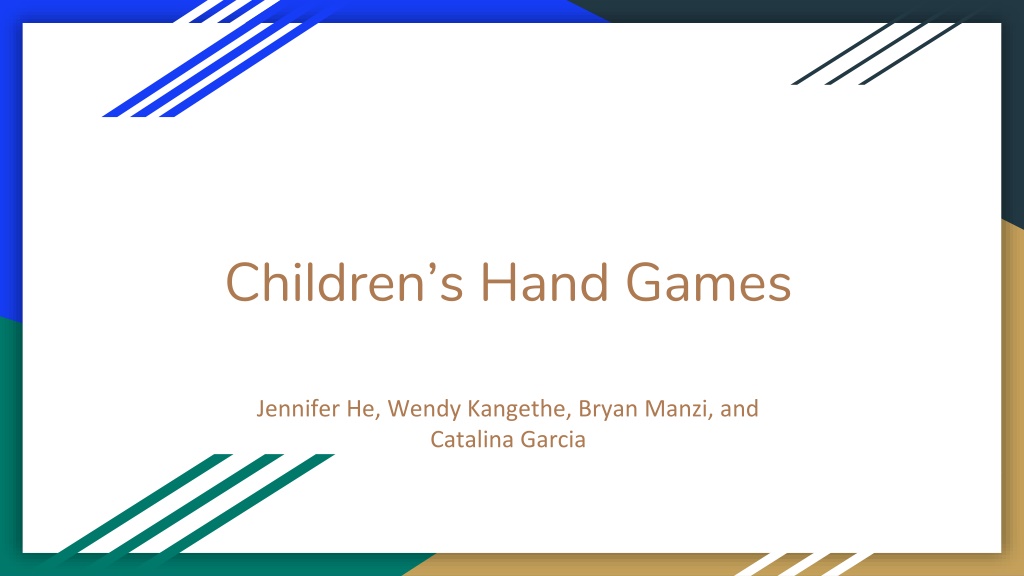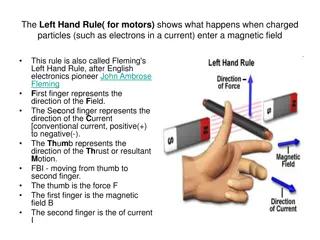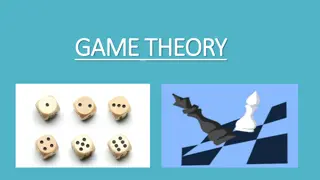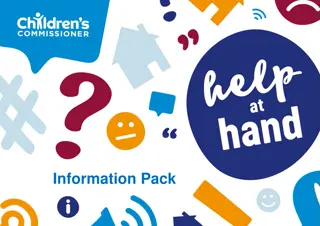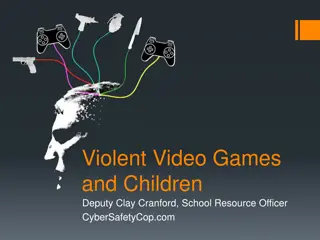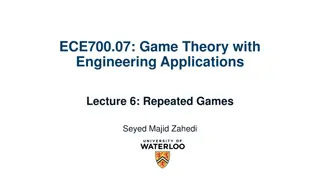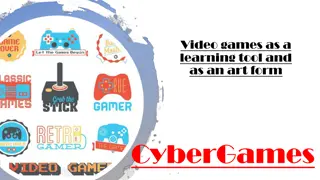Exploring Children's Hand Games Across Cultures
Discover the richness of children's hand games played by Jennifer He, Wendy Kangethe, Bryan Manzi, and Catalina Garcia. This project aims to unify folklore elements by collecting and analyzing hand games from around the world. Various games from different continents showcase similarities, differences, and themes, shedding light on the popularity of these games among children globally.
Download Presentation

Please find below an Image/Link to download the presentation.
The content on the website is provided AS IS for your information and personal use only. It may not be sold, licensed, or shared on other websites without obtaining consent from the author. Download presentation by click this link. If you encounter any issues during the download, it is possible that the publisher has removed the file from their server.
E N D
Presentation Transcript
Childrens Hand Games Jennifer He, Wendy Kangethe, Bryan Manzi, and Catalina Garcia
Hand-games played by children from around the world Collected from young adults who shared with us the hand games they had played as children Interested in unifying element of folklore across cultures/countries
Looked for themes and analyzed similarities/differences across games Understand why children s hand games are so popular across the world Process: Field work through interviews Video-recorded Documentation of informant data, rules, text (4-step analysis if applicable) & contextual data Organize collection and videos of games from five continents
Analysis Movements Sounds Games American: Split & Concentration Chilean: Chapulin Colorado & Chocolate Indian/Pakistani: Akkad Bakkad Kenyan/Swahili Rwandan: Kirenge & Alphabet Game Saudi Arabian: On the Planet Mars Turkish Vietnamese: Crab Patterns & repetition Rhythm and words & sounds Violence Gender difference Meaning and Purpose Relationships, resolve issues, motor development, educational purposes & self-expression
Setting All learned from other children Played during short periods of time Played during school - recess - or family gatherings Require more than one participant. Most with two, but some more Children present, adults absent
Kijembe - Kenyan.mp4 Alphabet Game - Rwandan.MP4 Two-performers 0:05 - 0:15 Multi-performers 0:00 - 0:10
Movements Split-American.mp4 Parts where claps are similar, order different Split & Chocolate Split 0:42 - 0:46 Have same clapping patterns Chapulin Colorado & Concentration Chocolate - Chilean.mp4 Chocolate 0:00 - 0:05
Akkad Bakkad - Pakistani.mp4 Lots of sliding and clapping hands with self and other performer(s). Even Rwandan foot game has a lot of movements with performers feet. One game that does that involve large or much movement Akkad Bakkad Akkad Bakkad 0:05 - 0:15
Hand games, even Rwandan foot game, have elements of repetition Theory Easier to remember when playing with others Especially when other aspects, such as verbal elements, are added to the game
Sounds Split-American.mp4 Games were verbal and non-verbal Sounds can be made with hands, even feet Both types had a specific order/pattern and tempo present demanded by rhythm Split 1:00 - 1:08 Kirenge - Rwandan.MOV Kirenge
Chapulin Colorado - Chilean.mp4 Different geographical locations share same rhythm, tune, and movements Chapulin Colorado & Concentration Chapulin Colorado 0:00 - 0:08 Concentration - American.mp4 Concentration 0:11 - 0:20
Use words because of how interesting they are phonetically, not logically Chapulin Colorado Famous Mexican TV show character Did not know character or watch show Liked unusualness of the sound Tempo/rhythm dictate participation rate & rules of game Concentration Think up category item throughout game Lose game if don t Akkad Bakkad Moderator points to players fingers along with tempo and beat
Sounds in place of words Advance song and rhythm, not meaning behind song Kenyan Hand Game Param param used after every line Does not have actual meaning Kijembe - Kenyan.mp4 Kijembe 0:05 - 0:20
Violence Different approach to violence in girls and boys games Boys games have explicitly violent components -rules, punishments as do games played by both sexes. Girls games may have violent lyrics
Meaning and Purpose Pass time & deal with boredom Game and children s way of thinking, learning, and developing Connect with other children Motor Development Practice coordination Move hands, match rhythm with other performer Building relationships Rwandan hand game Resolve conflict and apologize
Kijembe - Kenyan.mp4 Educational purposes Divide vocabulary into different categories Concentration Larger vocab bank, better chance of winning Learn how to count Kijembe Songs Learn words & pronunciation Understand rhymes and music Kijembe 0:25 - 0:35
Freely express self Under game, can express/talk about taboo topics Kenyan/Swahili Kijembe Games Frustration and anxiety for being hit by teachers Chapulin Colorado Topic of pissing Embarrassing & negative connotation Many times, seems like have no meaning Lyrics make no sense Deeper analysis reveals some sense When no sense Sounds, rhythm, & movement more important for children More important than semantic meaning and logic
